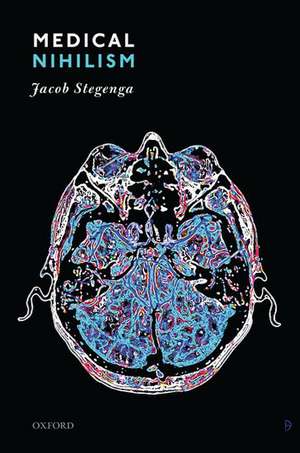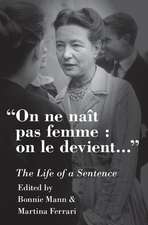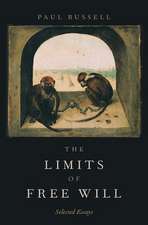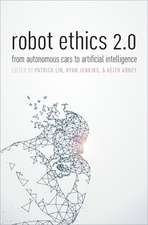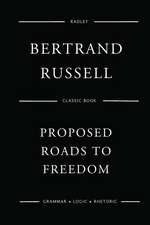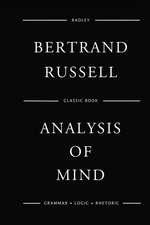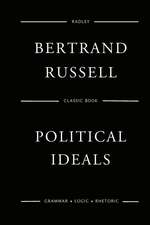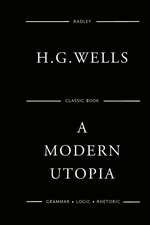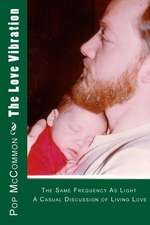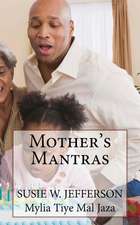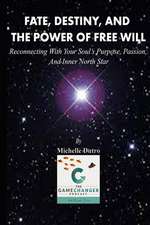Medical Nihilism
Autor Jacob Stegengaen Limba Engleză Paperback – 28 mai 2020
| Toate formatele și edițiile | Preț | Express |
|---|---|---|
| Paperback (1) | 255.59 lei 3-5 săpt. | |
| OUP OXFORD – 28 mai 2020 | 255.59 lei 3-5 săpt. | |
| Hardback (1) | 178.57 lei 31-37 zile | +45.49 lei 7-13 zile |
| OUP OXFORD – 15 mar 2018 | 178.57 lei 31-37 zile | +45.49 lei 7-13 zile |
Preț: 255.59 lei
Nou
Puncte Express: 383
Preț estimativ în valută:
48.91€ • 50.68$ • 40.82£
48.91€ • 50.68$ • 40.82£
Carte disponibilă
Livrare economică 01-15 martie
Preluare comenzi: 021 569.72.76
Specificații
ISBN-13: 9780198747208
ISBN-10: 0198747209
Pagini: 248
Dimensiuni: 157 x 233 x 14 mm
Greutate: 0.41 kg
Editura: OUP OXFORD
Colecția OUP Oxford
Locul publicării:Oxford, United Kingdom
ISBN-10: 0198747209
Pagini: 248
Dimensiuni: 157 x 233 x 14 mm
Greutate: 0.41 kg
Editura: OUP OXFORD
Colecția OUP Oxford
Locul publicării:Oxford, United Kingdom
Recenzii
Ultimately, medical nihilism is an important topic in healthcare today, and the present book is a significant addition to that topic, which deserves wide readership and engagement.
A much needed call to temper our enthusiasm about the enterprise of medical therapy.
This book is philosophy with a bite. Should we trust medicine? Stegenga shows there is much to be sceptical of. This is a scary thesis, all the more so because Stegenga's arguments are persuasive and his accounts of the empirical facts seem fair and well balanced. The underlying problem that the book tackles in medicine how to distinguish compelling science from chaff is not only at the heart of philosophy of science but at the heart of every science. Here Stegenga shows how we can address this problem in a particular scientific context by understanding the fine details of research. This is first-rate philosophy applied to one of our most important sciences.
Jacob Stegenga's book is timely as it arrives when many doctors feel medicine is in crisis. We have become unsure what medicine is for and have over-reached ourselves; and despite the appearance of evidence-based medicine 20 years ago there is deep anxiety now about the quality and completeness of the evidence that underpins medicine. The best doctors, I believe, have always been medical nihilists, aware that many new interventions are oversold, but the depth and scope of this book can help doctors move beyond their present crisis.
A much needed call to temper our enthusiasm about the enterprise of medical therapy.
This book is philosophy with a bite. Should we trust medicine? Stegenga shows there is much to be sceptical of. This is a scary thesis, all the more so because Stegenga's arguments are persuasive and his accounts of the empirical facts seem fair and well balanced. The underlying problem that the book tackles in medicine how to distinguish compelling science from chaff is not only at the heart of philosophy of science but at the heart of every science. Here Stegenga shows how we can address this problem in a particular scientific context by understanding the fine details of research. This is first-rate philosophy applied to one of our most important sciences.
Jacob Stegenga's book is timely as it arrives when many doctors feel medicine is in crisis. We have become unsure what medicine is for and have over-reached ourselves; and despite the appearance of evidence-based medicine 20 years ago there is deep anxiety now about the quality and completeness of the evidence that underpins medicine. The best doctors, I believe, have always been medical nihilists, aware that many new interventions are oversold, but the depth and scope of this book can help doctors move beyond their present crisis.
Notă biografică
Jacob Stegenga is a Lecturer in the Department of History and Philosophy of Science at the University of Cambridge. He received a Ph.D. from the University of California San Diego, and he has held fellowships at the University of Toronto and the Institute of Advanced Study at Durham University. His research focuses on philosophy of science, including methodological problems of medical research, conceptual questions in evolutionary biology, and fundamental topics in reasoning and rationality. His research employs empirical findings, analysis, and formal methods to establish normative conclusions about science.
